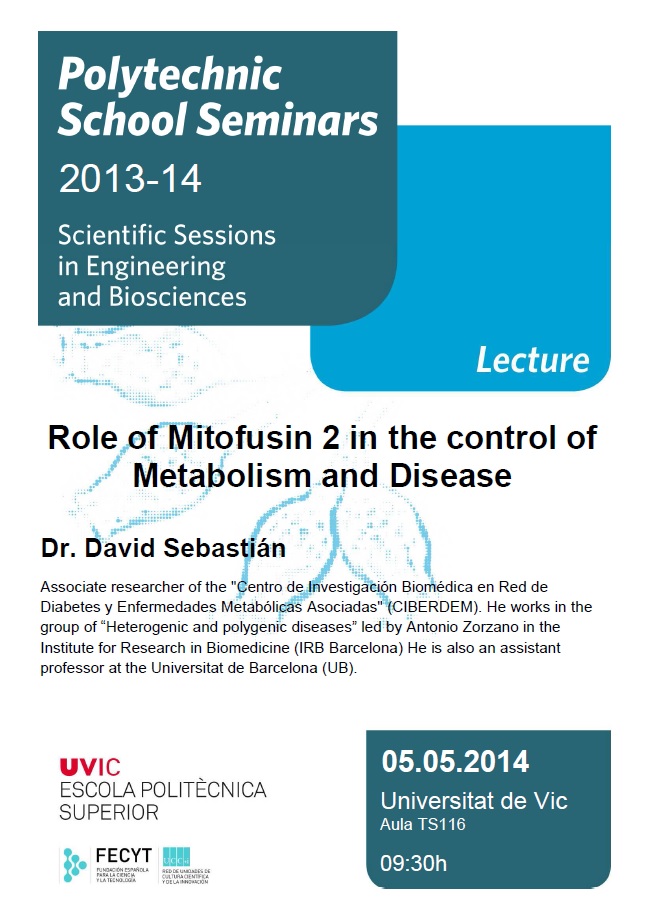Date/Time
Date(s) - 05/05/2014
9.30 - 11.00
Location
Aula TS116
Category(ies)
Title: “Role of Mitofusin 2 in the control of Metabolism and Disease”.
Dr. David Sebastián: Associate researcher of the “Centro de Investigación Biomédica en Red de Diabetes y Enfermedades Metabólicas Asociadas” (CIBERDEM). He works in the group of “Heterogenic and polygenic diseases” led by Antonio Zorzano in the Institute for Research in Biomedicine (IRB Barcelona) He is also an assistant professor at the Universitat de Barcelona (UB).
Date: 5th of May at 9:30h.
Place: Aula TS116
Abstract: Mitochondria are dynamic organelles that play a key role in energy conversion. Optimal mitochondrial function is ensured by a quality-control system tightly coupled to mitochondrial dynamics (fusion and fission of mitochondria). In this connection, we have demonstrated that the mitochondrial fusion protein Mitofusin 2 (Mfn2) plays a key role in the maintenance of mitochondrial function and is a mighty regulator of metabolism. Hence, loss-of-function of Mfn2 in mouse leads to mitochondrial dysfunction and disturbance of metabolic homeostasis. Deficiency of Mfn2 in skeletal muscle or liver leads to glucose intolerance and insulin resistance, and deficiency of Mfn2 in hypothalamus leads to hyperphagia and obesity. Moreover, Mfn2 expression is decreased in skeletal muscle from obese or type 2 diabetic subjects.
Mitochondrial dysfunction is also associated with aging although its causes are still under debate. We have also demonstrated that aging leads to a progressive reduction of Mfn2 in mouse skeletal muscle and ablation of Mfn2 in muscle of young mice constitutes a gene signature that is highly associated with aging. Furthermore, skeletal muscle Mfn2-deficient mice present an unhealthy aging characterized by an aggravation of age-related metabolic disease and sarcopenia. Overall, these data strongly supports the idea that Mfn2, by controlling mitochondrial function and metabolism, is implicated in several diseases characterized by metabolic deregulation, such as type 2 diabetes, obesity and aging.


